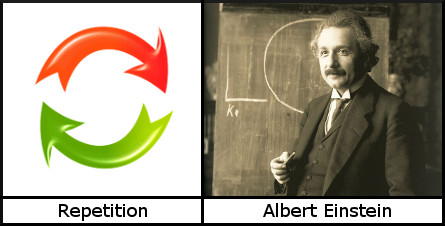Albert Einstein? Al-Anon? Narcotics Anonymous? Max Nordau? George Bernard Shaw? Samuel Beckett? George A. Kelly? Rita Mae Brown? John Larroquette? Jessie Potter? Werner Erhard?

Question for Quote Investigator: It’s foolish to repeat ineffective actions. One popular formulation presents this point harshly:
The definition of insanity is doing the same thing over and over again and expecting a different result.
These words are usually credited to the acclaimed genius Albert Einstein. What do you think?
Reply from Quote Investigator: There is no substantive evidence that Einstein wrote or spoke the statement above. It is listed within a section called “Misattributed to Einstein” in the comprehensive reference “The Ultimate Quotable Einstein” from Princeton University Press.1
The earliest strong match known to QI appeared in October 1981 within a Knoxville, Tennessee newspaper article describing a meeting of Al-Anon, an organization designed to help the families of alcoholics. The journalist described the “Twelve Steps” of Al-Anon which are based on similar steps employed in Alcoholics Anonymous. The newspaper began with these two steps:2
Step 1: We admitted we were powerless over alcohol – that our lives had become unmanageable.
Step 2: Came to believe that a Power greater than ourselves could restore us to sanity
One of the attendees at the meeting hesitated to accept the accuracy of second step. Emphasis added to excerpts by QI:
Not all the women are willing to admit they needed to be “restored to sanity.” In fact, one of them adamantly maintains that she had never reached a point of insanity. But another remarks, “Insanity is doing the same thing over and over again and expecting different results.”
The second earliest strong match known to QI appeared in a pamphlet printed by the Narcotics Anonymous organization in November 1981:3
The price may seem higher for the addict who prostitutes for a fix than it is for the addict who merely lies to a doctor, but ultimately both pay with their lives. Insanity is repeating the same mistakes and expecting different results.
QI acquired a PDF of the document with the quotation above on the website amonymifoundation.org back in February 2011. The document stated that it was printed in November 1981, and it had a 1981 copyright notice. The website was subsequently reorganized, but the document remains available via the Internet Archive Wayback Machine database.
Below are additional selected citations in chronological order.
Continue reading “Quote Origin: Insanity Is Doing the Same Thing Over and Over Again and Expecting Different Results”
